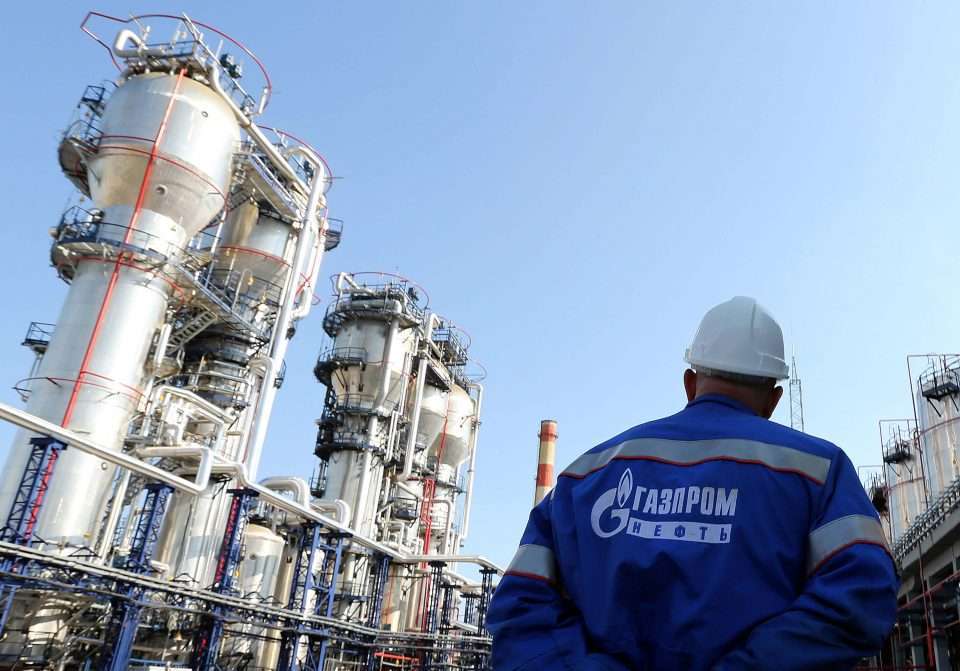Dahej (Gujarat): After the US, Russia today began supplying LNG to India under a long-term deal as world’s fourth-largest buyer of liquefied natural gas (LNG) diversifies import basket to meet its vast energy needs.
LNG carrier ‘LNG Kano’, carrying a cargo from Russian supplier Gazprom, docked at Petronet LNG’s import facility here this morning, officials said.
Gazprom supplied the 3.4 trillion British thermal unit (TBtu) of cargo from Nigeria.
The LNG cargo was received by Oil Minister Dharmendra Pradhan.
Today will be considered as Golden Day in India’s energy roadmap, he told reporters here. “First we renegotiate the price of LNG from Qatar, then reworked Australian supplies and now gas from Russia under renegotiated terms have started to flow.”
India will import LNG worth an estimated USD 25 billion over the contract period of 20 years from Russia, he adds, “Gazprom price (after being reworked) is very competitive.”
“Four years back, we were importing LNG from only Qatar. Today we are getting LNG from Australia, US and now Russia,” Pradhan said.
India, he said, is pushing towards a gas-based economy by raising the share of environment-friendly fuel in the energy basket to 15 percent from current 6.2 percent.
There exists huge scope for gas usage in the Indian economy – from generating power to producing quality steel, he said adding that increasing gas share would also help the country meet its COP21 commitment to cutting carbon emission.
India is dependent on imports to meet 45 percent of its gas needs.
Beginning of supplies from Russia comes within weeks of India importing its first ever LNG cargo from the US under a long-term import deal.
Pradhan said that the starting of LNG imports from Russia has added a new dimension to the Indo-Russian bilateral relations, particularly in the oil and gas sector. ?
Russia has emerged as a long-term source for India’s hydrocarbon imports, he said. ?
Stating that government is committed towards transforming India into a gas-based economy, he said investments are being made for augmenting natural gas infrastructure. ?
In the last few years, Indian companies have made an investment of more than USD 10 billion in acquiring varying stakes in strategic Russian projects including Sakhalin-1, Vankorneft, and Taas-Yuryakh.
On the other hand, Russian company-led consortium has committed an investment of USD 13 billion in Essar Oil in 2016.
GAIL has renegotiated with Russian supplier Gazprom the terms of the 20-year deal to import 2.5 million tonnes a year of LNG. Both price and volume ramp-up have been renegotiated.
Company Chairman and Managing Director B C Tripathi said the contracted volume has been lowered from 2.5 million tonnes (MT) to 0.5 MT in the first year 2018-19, 0.75 MT in 2019-20, 1.5 MT in the third year 2020-21.
GAIL has committed to importing the full 2.5 MT a year by the fourth year and make up for the initial volume reduction over the remaining length of the contract.
Also, the price indexation has been changed from the Japan customs-cleared crude to Brent, and the oil-linked slope of the contract formula lowered, and therefore the final price.
Sources said the renegotiated contract provides for diverting a part of the volume, originally contracted on a delivered ex-ship basis, to other markets.
Under the re-worked deal with Gazprom, the duration of the contract has been extended by three years and the Indian company has agreed to buy an additional six million tonnes of LNG volumes.
The pricing of the super-cooled fuel has been changed from 9-month linkage of Japanese customs-cleared crude to three months average of Brent, sources said. ?
The deferral will allow GAIL more time to find customers for the imported gas.
GAIL had signed the original deal on August 29, 2012, with Gazprom Marketing and Trading Singapore Pte Ltd (GMTS), Singapore. The deal was renegotiated in January this year.
Gazprom will supply LNG from Yamal LNG project in the Arctic Peninsula.
India has been making the most of its position as one of the world’s biggest energy consumers to strike better bargains for its companies.
Last year, India got US energy major Exxon Mobil Corp to lower the price of 1.5 MT a year of LNG from Gorgon project in Australia, saving Rs 4,000 crore in import bill. At the time of signing, in 2009, the Gorgon LNG price with US-based ExxonMobil was agreed upon at 14.5 percent.
In late 2015, it had renegotiated the price of the long-term deal to import 7.5 MT per year of LNG from Qatar, helping save Rs 8,000 crore.
Most recently, GAIL has been trying to renegotiate the price and terms of 3.5 MT a year US Sabine Pass contract with Cheniere Energy.
The contract was signed on a FOB basis in 2011, with the price formula set at 115 percent of the Henry Hub gas price plus a fixed USD 3 per million British thermal unit terminal usage charge.
Sources said when the Russian deal was first signed, Gazprom envisaged supplying India with LNG from its planned Schtokman project in the Barents Sea, which was subsequently scrapped as the shale gas revolution in the United States removed a key customer base.
The resulting contractual inconsistency gave GAIL a foothold to re-open the Gazprom deal, sources said.
As an independent media platform, we do not take advertisements from governments and corporate houses. It is you, our readers, who have supported us on our journey to do honest and unbiased journalism. Please contribute, so that we can continue to do the same in future.

